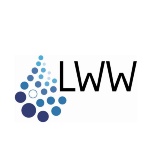EnviPEAK - Environmental Impacts of Hydropeaking
- Abstract
-
Objective
The main objectives are to assess environmental impacts of hydropeaking and increased variation in river regulations and to describe how, when and where hydropeaking and frequent regulation may be implemented with acceptable impacts on the ecosystem. Mitigation measures regarding negative environmental impacts of hydropeaking will be identified and tested experimentally. An environmental impact assessment tool to categorize hydro power schemes with respect to impacts will be developed.
User benefits
This project will generate guidelines on how to operate hydropeaking in order to reduce negative ecological impacts. This project will describe alternative mitigation measures and test and evaluate the mitigation effects with respect to ecological impacts of hydropeaking. This project will also categorize existing Norwegian hydropower plants with respect to hydropeaking and thereby give an overview over where and when hydropeaking will have
small negative ecological impacts
small negative ecological impacts when mitigated
The results of this project intend to give additional information to evaluate the impact on fish caused by abrupt flow reductions. This information will be useful as a basis for scientifically based hydropower guidelines, setting up conditions for hydropower licenses and establishing automatic bypass solutions (e.g. valves) to reduce possible negative impacts from hydropower on fish production. Optimised mitigation strategies will be designed for at least two hydropeaking systems. - Project manager
-
- Research assistants
-
Markus Noack
Florian Leo - Department
- Duration
-
From: 2009.01.01
To: 2012.12.31
- Finances
-
CEDREN - Centre for Environmental Design of Renewable Energy, Norway
- Cooperation partners
-
SINTEF Energy Research, LFI Oslo, LFI Trondheim, Norwegian University of Science and Technology (NTNU); Norwegian Institute for Nature Research (NINA); Norwegian Institute for Water Research (NIVA); UNIFOB-LFI Bergen; Department of Fisheries and Ocean, Newfoundland; Finnish Game and Fisheries Research Institute; Sikumiut Environmental Management, Canada; University of Natural Resources and Life Sciences, Austria; University of Montana, Biological Station, USA; Universitaet Stuttgart, Institute of Hydraulic Engineering, Germany


